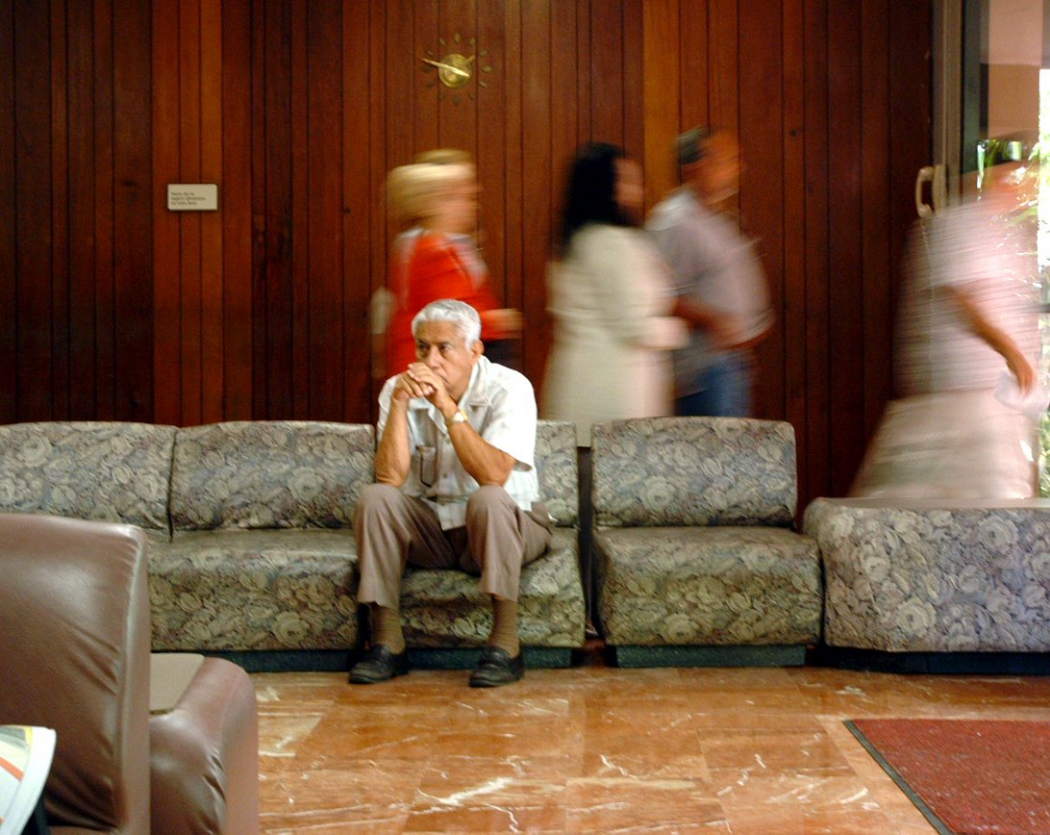As medical students and future physicians, we are granted permission to witness some of the most intimate and vulnerable moments of our patients’ lives. We are invited to carry with us our patients’ hopes, dreams, fears, and sorrows. We carry with us their stories.
These are a few of the things I carry — moments of fear, resilience, self-acceptance. I share these stories as a tribute to the strength of my patients and a reminder of the precious gift we have of helping carry another’s burdens.
—
Our interview started out as expected — a check-in on his weight, increased by a pound instead of decreased as he had promised at his last visit; blood sugar control, also progressively increased with his weight; blood pressure, precariously managed on his current medications. He was in for his annual visit, and he didn’t have any other concerns for us. We talked about his grandkids, his gardening, a trip he had been hoping to take to Europe with his wife before the pandemic. At one point he said “you know, I still have episodes of depression” — he looked down into his hands, folding into himself — “but I do my best to keep my head up.”
“Do you still have the dreams?” my attending asked, quietly.
“Sometimes,” he responded, “but they always end at exactly the same place.”
“Do they wake you up from sleep?”
“Oh, yes, it’s the fear. You know, the most afraid I ever felt was when I’d run out of ammo. To be so vulnerable and have no idea what was coming for you. Or the times when my gun stuck, and I’d have to try to figure out what was wrong and un-stick it before, well…that’s always what my dreams are about.”
—
It was a Friday, and we were making rounds on our patients, hoping to wrap things up going into the weekend. The overnight team had admitted a woman for heavy abnormal uterine bleeding. She was young, with three young children at home, unsure if she wanted to have more in the future. This was her second time being admitted to the hospital for heavy bleeding; the last time she required a total of three blood transfusions. The overnight attending had put her on high-dose estrogen. Her hemoglobins continued to trend down, and she had already gotten one transfusion since being admitted. The chief resident and I went to introduce ourselves and get her story.
“I had been doing really well on my birth control pills, really managing the bleeding every month,” she said, “but then I went on a short trip to visit my mother, and I didn’t take them for a few days, and then I just thought that I was doing so much better so I just stopped taking them after my last period was so normal.” She looked down, tears filling her eyes. “I’m not sure if I want to have more kids, but they talked to me about endometrial ablation, and at this point I’m just so tired of this happening. I can’t keep being away from my husband and kids to be hospitalized, and I can’t risk anything happening to me. I just can’t do this anymore.” Tears slid silently down her face.
“Listen,” the chief said softly, “you’ve hit a bump in the road, and it’s knocked you off course. It happens to all of us, and it’s ok. There will always be bumps in the road. But we have to get up and keep going.”
The patient looked up at her, a weary traveler on this bumpy road of living.
“You told us you weren’t sure if you wanted to have more kids, and we know you did well on the birth control pills. The endometrial ablation is very final, and I don’t want you making a decision like that out of desperation. So let’s get you stabilized, get you back on the birth control, and then you’ll have more time to decide about having more kids. And remember, there will always be bumps in the road, and that’s ok.”
—
We were consulted for a patient with an “unsuccessful suicide attempt.” A young man, driven to suicide from uncontrolled pain after a car accident years ago; an unfortunate near-casualty of the reduction on opioid prescribing. He was gruff, obviously used to a life of suffering, and not enjoying talking to us about his feelings.
“My family loves me, I know they do. What I did was stupid. I love my niece and nephew so much; I haven’t told them that I’m here,” he said. “I’m a superhero to them.”
He looked down, begrudgingly wiping away a tear.
“I guess even superheroes have bad days sometimes.”
—
These stories are based on real patients; however, I have altered certain aspects of their lives and stories to maintain their confidentiality.
Ann Staudinger Knoll is a member of The University of Arizona College of Medicine - Phoenix Class of 2023. After graduating from the University of Montana - Bozeman with a degree in Chemistry, she lived with her spouse and two perfect cats in New York City for six years before moving to the dusty Southwest for medical school. She enjoys volunteering, staying up to date on new films and tv shows, and eating any and every dessert.


